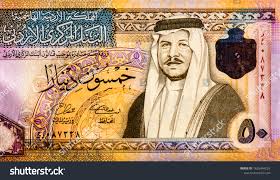The Role and Influence of the King of Jordan

Introduction
The King of Jordan, Abdullah II, plays a critical role in the political landscape of the Middle East. His leadership is vital not only for Jordan’s domestic affairs but for regional stability, especially in light of ongoing conflicts and shifts in power dynamics within the region. As Jordan is sandwiched between turmoil in Syria and Iraq, the King’s decisions and diplomatic relationships carry significant weight.
Background and Recent Developments
Since ascending the throne in 1999, King Abdullah II has focused on modernising Jordan’s economy while navigating complex social issues. His reign has witnessed numerous challenges, including the influx of refugees from neighbouring countries and the impact of the COVID-19 pandemic on Jordan’s economy. Most recently, the King has called for reforms to improve governance and create more job opportunities for young Jordanians, who represent a majority of the population.
In September 2023, Abdullah II addressed the United Nations General Assembly, highlighting Jordan’s efforts in hosting refugees, particularly from Syria. He appealed for international support, emphasizing that Jordan’s capacities are stretched thin due to the ongoing humanitarian crisis. His advocacy for refugees underscores his commitment to global humanitarian values while drawing attention to the urgent need for international cooperation in crisis response.
Regional Diplomatic Relations
King Abdullah II has maintained a delicate balancing act in regional politics. His relationships with key players such as the United States, Saudi Arabia, and European nations are crucial. Recently, he has been involved in mediating peace discussions and has supported initiatives aimed at addressing the Israeli-Palestinian conflict. His role in promoting stability in the region has earned him respect from various world leaders and underscores Jordan’s pivotal position as a mediator in Middle Eastern affairs.
Conclusion
The importance of the King of Jordan extends beyond national borders. His leadership not only influences Jordan’s social and economic landscape but also plays a significant role in regional geopolitics. As challenges continue to mount, including economic strains and security issues, the King’s ability to navigate these complexities will remain essential. Observers anticipate further reforms domestically while hoping for Jordan to continue its legacy as a stabilising force in an often tumultuous region.
